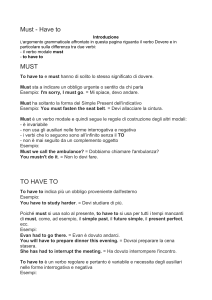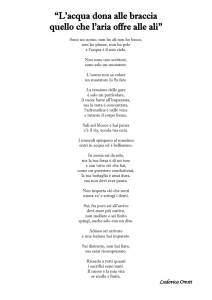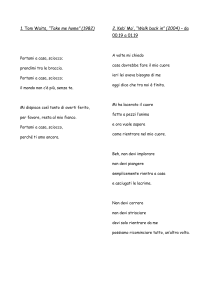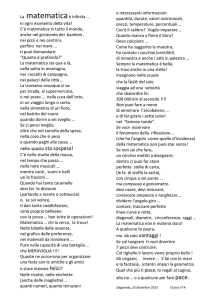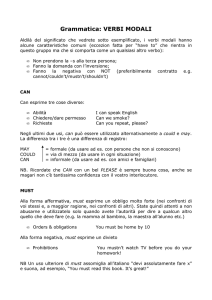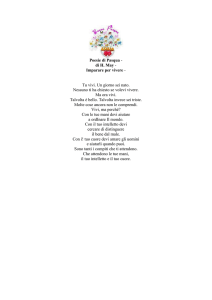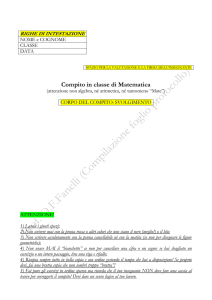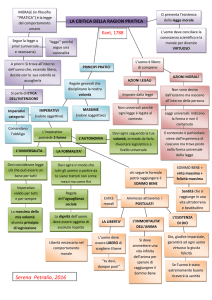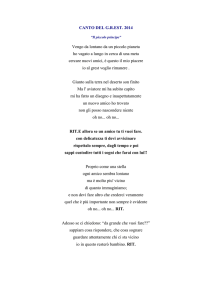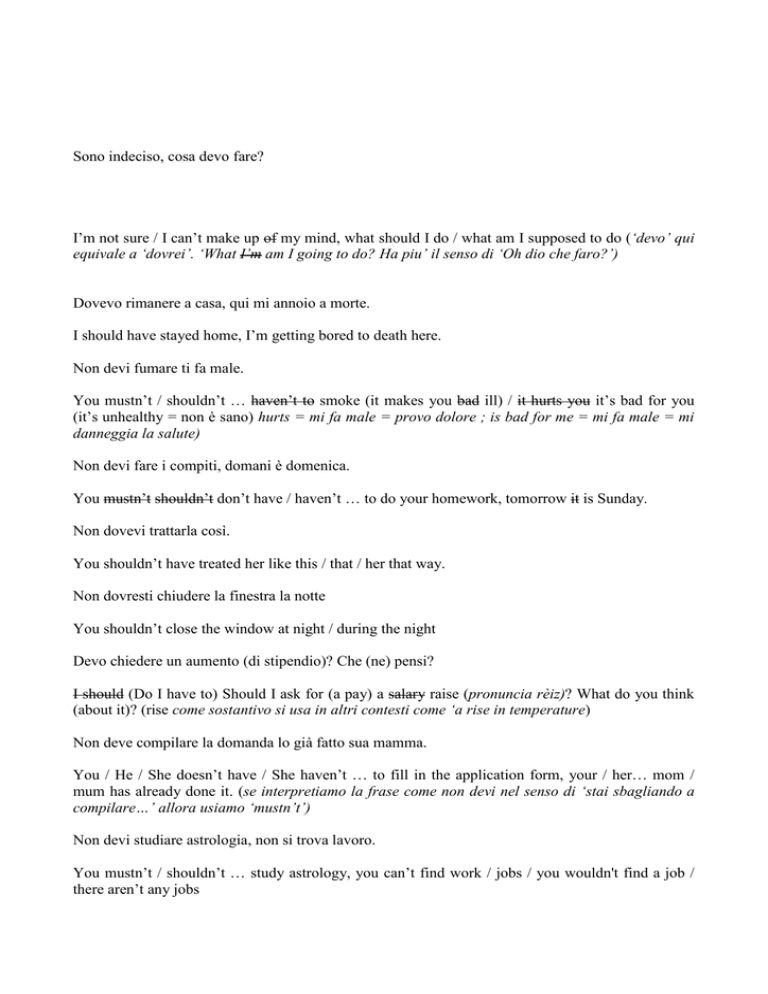
Sono indeciso, cosa devo fare?
I’m not sure / I can’t make up of my mind, what should I do / what am I supposed to do (‘devo’ qui
equivale a ‘dovrei’. ‘What I’m am I going to do? Ha piu’ il senso di ‘Oh dio che faro?’)
Dovevo rimanere a casa, qui mi annoio a morte.
I should have stayed home, I’m getting bored to death here.
Non devi fumare ti fa male.
You mustn’t / shouldn’t … haven’t to smoke (it makes you bad ill) / it hurts you it’s bad for you
(it’s unhealthy = non è sano) hurts = mi fa male = provo dolore ; is bad for me = mi fa male = mi
danneggia la salute)
Non devi fare i compiti, domani è domenica.
You mustn’t shouldn’t don’t have / haven’t … to do your homework, tomorrow it is Sunday.
Non dovevi trattarla così.
You shouldn’t have treated her like this / that / her that way.
Non dovresti chiudere la finestra la notte
You shouldn’t close the window at night / during the night
Devo chiedere un aumento (di stipendio)? Che (ne) pensi?
I should (Do I have to) Should I ask for (a pay) a salary raise (pronuncia rèiz)? What do you think
(about it)? (rise come sostantivo si usa in altri contesti come ‘a rise in temperature)
Non deve compilare la domanda lo già fatto sua mamma.
You / He / She doesn’t have / She haven’t … to fill in the application form, your / her… mom /
mum has already done it. (se interpretiamo la frase come non devi nel senso di ‘stai sbagliando a
compilare…’ allora usiamo ‘mustn’t’)
Non devi studiare astrologia, non si trova lavoro.
You mustn’t / shouldn’t … study astrology, you can’t find work / jobs / you wouldn't find a job /
there aren’t any jobs
Devi mettere in ordine la tua stanza!
You (have to) must clean up / tidy up…your room!
Il verbo ‘dovere’ si traduce con must, have to, should a seconda del significato e della forma
negativa o positiva. Nella forma affermativa questi tre verbi differiscono solo per intensità:
You should eat = dovresti mangiare – devi mangiare
You have to eat = devi mangiare
You must eat = devi mangiare – devi assolutamente mangiare
Nella forma negativa invece può cambiare il significato:
You shouldn’t eat = non dovresti mangiare
You mustn’t eat = non devi assolutamente mangiare;
You don’t have to eat = non devi mangiare per forza (ma se vuoi puoi farlo)
Nei primi due c’è cambiamento di intensità, ma nella terza frase cambiamento di significato
L’espressione italiana ‘non devi mangiare’ è quindi ambigua in quanto può esprimere sia un
divieto (must) che una semplice assenza di obbligo (don't have to). Per distinguere (solo al
negativo) si può usare il seguente trucco, se si può aggiungere ‘per forza’ = did not have
to…altrimenti must / shouldn’t a seconda dell’intensità.
2

